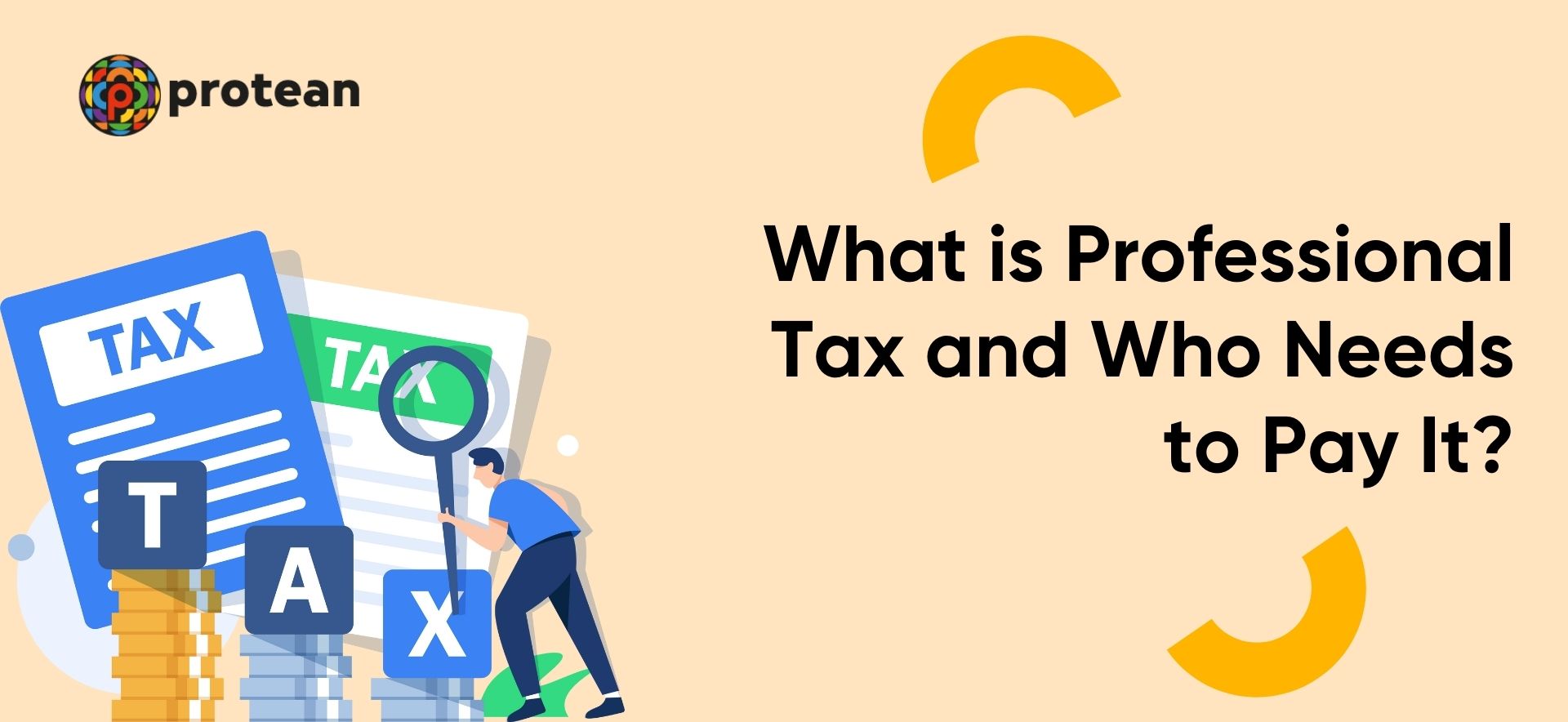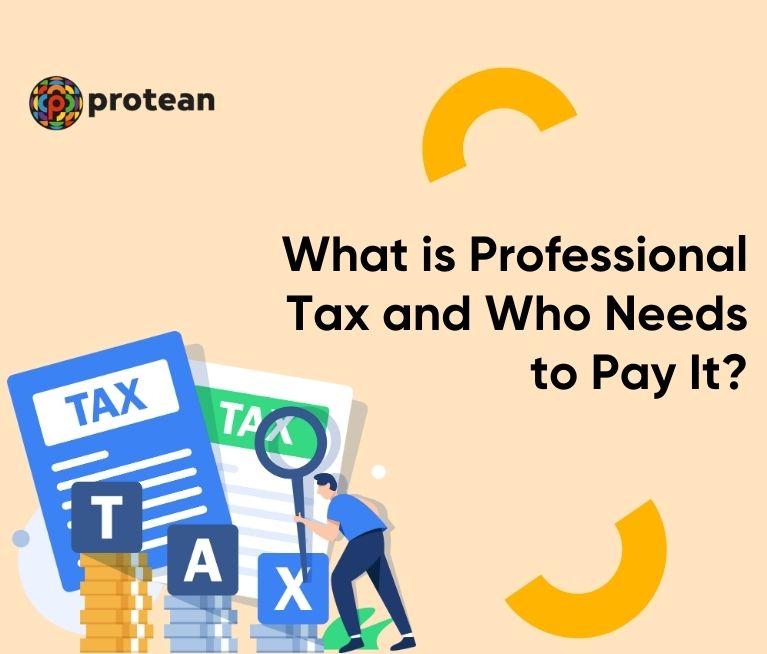Professional tax, commonly known as Profession Tax, is a tax levied by state governments in India on income earned from professional services or employment. It is charged as a percentage of income earned.
The tax was introduced to help states raise additional revenue for expenditure on development activities and welfare programs. The proceeds from professional tax are reserved exclusively for municipal and local body activities in the state.
Applicability of Professional Tax
Respective state governments levy professional tax based on the entry in Schedule VII of the Constitution. It applies to both residents and non-residents in a state.
The tax rates and slabs may vary across different states. Some key pointers on the applicability of this tax are:
- It is charged on income from professions, trades, callings, or employment. This includes legal, medical, engineering, and accounting professions.
- This tax applies to self-employed individuals and salaried employees who earn income from their profession.
- The tax is charged annually, although advance payment on a monthly or quarterly basis is allowed in some states.
Who Needs to Pay Professional Tax?
The professional tax is payable by:
Salaried Individuals
For salaried professionals or employees, the tax is deducted every month directly by the employer from the salary income and paid to the municipal corporation or local body on the employee's behalf.
Self-Employed Professionals
Self-employed individuals earning from the practice of professions such as doctors, lawyers, chartered accountants, cost accountants, and architects are required to register themselves and pay professional tax based on the slab rates applicable in their state of practice. Possessing an Income Tax PAN card is essential for their registration under the professional tax framework.
Business Owners and Traders
Business owners, traders, and firms' partners are also liable to pay this tax. The slab rates and calculations vary across types of business in different states.
Who is Exempt?
While the professional tax has wide applicability, certain categories of professionals may be exempt fully or partially from paying this tax:
- Senior citizens above a certain age (usually 60 or 65 years) are fully exempt in some states. In other states, higher exemption limits or lower tax slabs may apply.
- Differently abled individuals or those with specified disabilities/ailments are eligible for full/partial exemptions as per respective state laws. Proper medical certificates may need to be submitted to claim exemption.
- Most states also prescribe income-related exemptions. Professionals earning below a threshold income (ranging from Rs 5000 to 15000 per month across states) are exempted. The exemption threshold varies widely across states.
| Also Read: Apply for a PAN card reprint online |
How is Professional Tax Collected?
For Salaried Employees
For salaried employees, the employer directly deducts the tax from the salary. A monthly statement reflecting the tax deduction is provided in the salary slip. The employer collects and pools the tax deducted from all employees and deposits it with the designated local municipal body.
For Self-Employed
Self-employed individuals are expected to register under the local Tax Act/Rules and obtain a Registration (or Enrolment) certificate.
Thereafter, they need to file regular half-yearly or annual returns providing income details and computing tax liability at applicable slab rates. The tax needs to be paid on a self-assessment basis by challan/bank transfer in accordance with payment timelines.
States have evolving e-governance models for simplified online registration, return filing, and tax payment. However, specific procedures may vary across states.
| Also Read: Enhanced Security PAN Card |
Consequences of Non-Compliance
It is mandatory for all professionals falling under tax ambit to comply with the tax provisions and timelines properly:
- Delayed or non-payment of professional tax can attract interest and/or penalties as prescribed.
- In some states, practising certificates to professionals may not be issued or renewed in case of tax non-compliance.
- For employees, the state governments can recover any unpaid or overdue tax amounts along with interest and penalties. Some states have strict laws to force recovery of unpaid professional tax.
- Thus, to avoid legal hassles or disruption of professional activities, professionals should duly comply with tax payment or deduction procedures laid down in their respective states.
Benefits of Paying Professional Tax
Some benefits that professionals can derive by complying with professional tax provisions are:
1. Ensures Legal Compliance
Registering and paying professional tax is an enforceable statutory requirement in all states. Non-compliance can attract penalties in the form of interest and fines. Sometimes, the authority to practice itself may be withdrawn in case of continued defaults. Paying professional taxes ensures professionals comply with state tax laws and avoid cumbersome legal hassles, disruption of services, and loss of reputation.
2. Enables Tax Planning Benefits
A professional tax payment receipt allows adding back the tax paid as part of overall tax-saving investments and expenditures by individuals. This paid tax can be deducted while filing income tax returns each year. So, aside from compliance, paying the tax also enables claiming associated savings - making it a financially wise move each year.
3. Avoids Interest and Penalties
If professionals overlook paying or deposit inadequate professional tax, states levy heavy daily interest and fines for non-compliance. So, while the base tax may seem small, the penalties plus interest can compound to sizable amounts—all avoidable by proper compliance. Hence, paying tax dues well in time eliminates these extra costs and serves as a deterrent against tax lapses by authorities.
4. Ensures Continuity in Professional Practice
For certified practising professionals, an up-to-date tax compliance status is essential to renew state-issued practice licenses annually. Non-compliance can lead to registration cancellation, hampering business for doctor clinics, law firms, and audit partnerships among consulting businesses. Further, recovery proceedings may also impact continuity. Thus, aside from revenue contribution, timely tax payment is also a way for professionals to ensure continuity, maintain reputation, and retain credibility by avoiding disruptive action.
Conclusion
Professional tax is a mandatory contribution for earning professionals towards local development in their practice. It is a small tax, but it helps the local economy in a meaningful way. By understanding its applicability, payment procedures, and exemption eligibility, professionals can ensure compliance and help avoid unnecessary legal hassles. They can also support local welfare causes that make cities liveable.
| Also Read: Importance of PAN Card |
Written by Bruhadeeswaran R.
Bruhadeeswaran R. is a B2B content expert with 14+ years of experience, specializing in National Pension System (NPS), PAN, DPI, eSignPro, and Central KYC. As Editor and Lead Content Writer at Protean eGov Technologies, he simplifies complex e-governance topics through engaging blogs, reports, and digital content.

